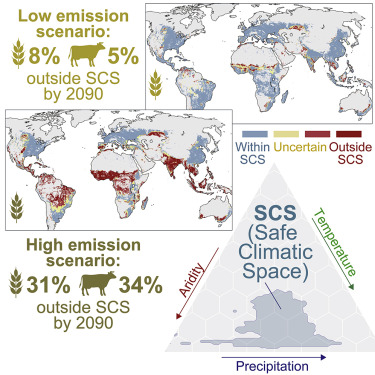Food production on our planet is dominantly based on agricultural practices developed during stable Holocene climatic conditions. Although it is widely accepted that climate change perturbs these conditions, no systematic understanding exists on where and how the major risks for entering unprecedented conditions may occur. Here, we address this gap by introducing the concept of safe climatic space (SCS), which incorporates the decisive climatic factors of agricultural production: precipitation, temperature, and aridity.
International Environmental Cooperation and The Global Sustainability Capital Framework, 2021, Pages 1-15

